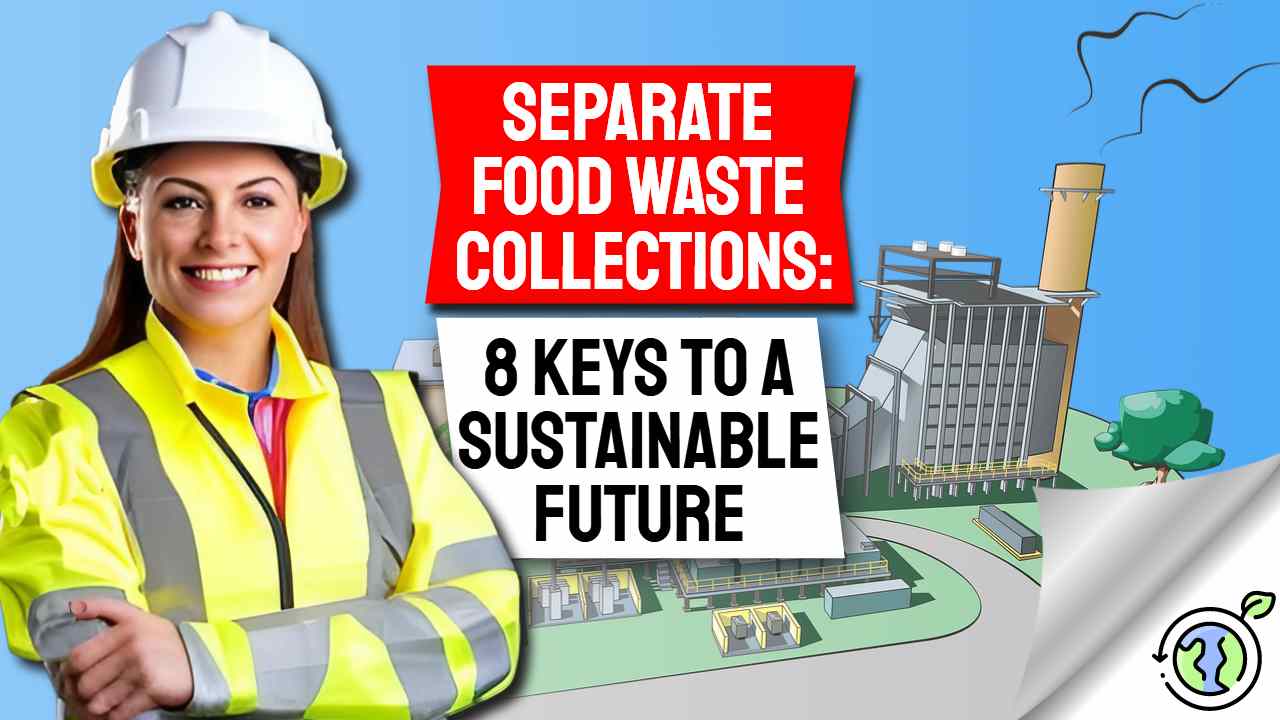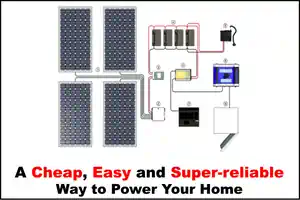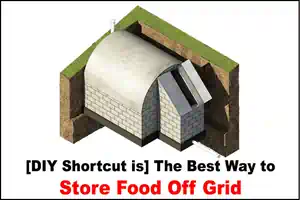Separate Food Waste Collections - 8 Keys to a Sustainable Future
by Separatio
Posted on 15-01-2023 12:36 AM

Separate food waste collections are becoming an increasingly popular solution for managing organic waste in municipalities and households in many countries, towns and cities.
By diverting food waste from landfills, these programs aim to reduce greenhouse gas emissions, save resources, and create valuable compost.
However, separate food waste collection programs are not without challenges, from cost and participation to education and awareness.
In this article, we will explore the benefits and challenges of separate food waste collections, and examine how municipalities and households can implement and maintain these programs effectively. We will look at:
- the impact on the environment, economy, and community, and
- also the potential for creating jobs, and
- how it can help to create a more sustainable society.
- Finally, we will provide an example of the successful programs in the UK that are reducing collection costs and share practical tips for starting a separate food waste collection program in your own community.
The 8 Key Outcomes That Drive the Introduction of Separate Food Waste Collections
Governments, those concerned about climate change, and municipal authorities promote separate food waste collections for several reasons:
1. Reducing greenhouse gas emissions: Food waste that ends up in landfills produces methane, a potent greenhouse gas, which contributes to climate change. Separate food waste collection programs allow this organic waste to be composted or converted into biogas, which can significantly reduce methane emissions.
2. Saving resources: By diverting food waste from landfills, separate food waste collection programs can conserve natural resources such as water and land, which are needed to produce food.
 3. Reducing pollution: Food waste in landfills can create pollutants such as leachate and odours, and separate food waste collection programs can reduce this pollution.
3. Reducing pollution: Food waste in landfills can create pollutants such as leachate and odours, and separate food waste collection programs can reduce this pollution.
4. Creating jobs: Separate food waste collection programs can create jobs in the waste management and composting industries, which can have a positive impact on the local economy.
5. Creating compost and fertilizer: Composting food waste can create valuable compost that can be used to improve soil health and productivity in agriculture and gardening. While using the organic pulp to feed a biogas digester produces both compost and a natural renewable liquid fertiliser.
6. Saving money: Diverting food waste from landfills can save money on waste disposal costs and create revenue from the sale of compost or biogas.
7. Encouraging recycling: Separate food waste collection programs can encourage residents to recycle more and reduce overall waste.
8. Reducing dependence on fossil fuels: By creating biogas from food waste, separate food waste collection programs can help reduce dependence on fossil fuels and promote energy independence.
Issues of Concern About Separate Food Waste Collection
- Cost: The cost of implementing separate food waste collection programs can be a significant issue for municipalities, as it requires additional resources such as specialized trucks and containers, as well as increased labour costs.
- Participation: Some residents may not be willing to participate in separate food waste collection programs, which can result in contamination of the regular waste stream and make it more difficult to recycle or compost the organic waste.
- Education and awareness: There may be a lack of education and awareness about the benefits of separate food waste collection programs and how to properly separate and store food waste, which can lead to confusion and non-compliance among residents.
- Odour and attract pests: Food waste when waiting to be collected can attract pests and produce odours, which can be a concern for residents who live near collection sites or composting facilities.
- Space: In some areas, and for flat dwellers there may be limited space for the storage of food waste prior to collection, which can be an issue for residents living in apartments or small homes.
- Collection Schedule: Some residents may find it difficult to comply with the collection schedule or may not have access to the program.
- Composting options: The availability of composting facilities may be limited in some areas, which can make it difficult to dispose of food waste in an environmentally friendly manner.
- Quality of compost: Some residents may be concerned about the quality of the compost produced by food waste collection programs, and whether it meets the standards for use in agriculture or gardening.
However, despite these concerns, many communities are implementing separate source-segregated food wast collection (often also called curbside kitchen waste collections in the case of household collections).
The Benefits of Separate Food Waste Collection
A successful separate food waste collection program can have a positive impact on the environment, economy, and community in several ways:- Environmental benefits: By diverting food waste from landfills, separate food waste collection programs can significantly reduce greenhouse gas emissions, as well as conserve resources such as water and land. The food waste can be converted into biogas or compost, which can be used as a renewable energy source or as a soil amendment, respectively.
- Economic benefits: Separate food waste collection programs can save municipalities and households money on waste disposal costs, as well as create revenue from the sale of compost or biogas. Additionally, these programs can create jobs in the waste management and composting industries, which can have a positive impact on the local economy.
- Community benefits: Separate food waste collection programs can educate and raise awareness among residents about the importance of reducing waste and conserving resources. It also can encourage recycling and promote a culture of sustainability in the community. Furthermore, compost can be used to improve soil health and productivity in agriculture and gardening, which can benefit local farmers and gardeners.
- Public health benefits: By diverting food waste from landfills, separate food waste collection programs can reduce pollutants such as leachate and odors, which can have a positive impact on public health.
- Creating jobs: Separate food waste collection programs can create jobs in the waste management and composting industries, which can have a positive impact on the local economy.
How Food waste Collection Can Save Municipal Authorities Money
Since the rise in energy prices in early 2022 UK anaerobic digestion plants which are run by recycling companies to accept food waste have been willing to pay up to about $25 per tonne for high-quality pure (microplastic-free) food waste delivered to them. (See LetsRecycle.com.)4 Tips for Local Authority Staff when Setting Up a Separate Food Waste Collection Service
- Educate and engage the community: One of the most important steps in starting a separate food waste collection program is educating and engaging the community. This can be done through informational meetings, flyers, or social media campaigns. It's essential to explain the benefits of the program and how residents can participate.
- Establish a collection system to fit community feedback: Once the community is on board, it's important to establish a collection system. This can include providing residents with separate bins for food waste, or setting up a curbside pickup program. It's important to make sure the collection system is convenient and easy to use for residents.
- Find a processing solution: Finally, it's important to find a processing solution for the collected food waste. This can include composting, anaerobic digestion, or other forms of organic waste treatment. It's important to work with a reputable and experienced processor to ensure the food waste is handled properly and safely.
- Measure and monitor the program: Once the program is in place, it's important to measure and monitor its effectiveness. This can include tracking the amount of food waste collected, monitoring the quality of the compost or biogas produced, and evaluating the program's economic and environmental impact. Continuously monitoring the program helps to identify areas for improvement and to make adjustments as needed.




